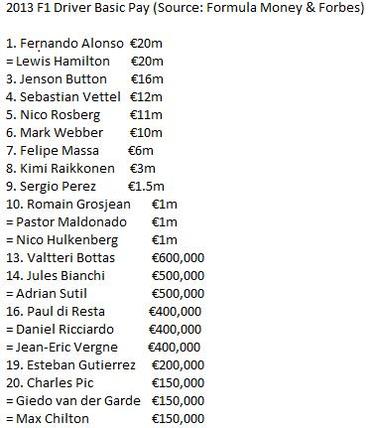It’s very hard to get into Formula 1 and it’s even harder to stay there. There are only 22 men in the world that can claim to be an F1 driver during any given season. However, the scarcity power is with the teams and not with the drivers as the business model for mid and lower grid teams has a pay as you go contract system. It’s a mechanism which is akin to an average footballer at an average Premier League team, say Scott Parker, having to find €5 million of sponsorship money to gain a place in the Fulham squad. It would certainly avoid a repeat of a Winston Bogarde situation but realistically would never happen in top flight football. It has been common practice in F1 for years. Our very own Eddie Jordan signed Michael Schumacher and gave him his F1 debut in 1991 over more experienced drivers because the German’s $150,000 in sponsorship money was too good an offer for the Irish team to turn down.

Liquidity is becoming a problem that is racing its way through the grid at an alarming rate. As previously mentioned in an earlier article there are mechanisms in place to ensure no F1 will get into debt, however, to enable a stable liquidity flow a lower ranked team may opt to compromise on out and out speed by selling its seats for anything between $5-8 million rather than selecting the most talented available driver. The end result is that the overall product to fans, F1 being a spectator driven sport, is of a lower quality. It will create a talent bottle neck in about 5 years ’time when the most experienced drivers in F1 will have spent the large part of their careers as payers rather than payees who were not necessarily the best of their generation.
One solution is for teams at the back end to receive a parachute payment similar to the NFL draft which gives the lowest placed squad the first pick of emerging talent for the next season. If the FIA are looking to keep the grid populated and help finances then the bottom five F1 outfits could be given a prize fund which enables them to buy the best of new driver talent rather than selling a contract to the highest bidder.
Until this takes place a quick driver will be worth maybe a tenth of a second over a rival but a wealthy driver truly is worth his weight in gold.
 RSS Feed
RSS Feed